"The Wave of Terror Isn't Going to Stop": A Painful Conversation with Journalist Yair Kraus
Yair Kraus, a journalist who has covered disturbances and attacks in Israel for years, is not at all surprised by the wave of terror. He is certain that if the state continues to behave sluggishly, the attacks will not cease. He warns: "A targeted operation is not enough; the problem must be addressed at its root."
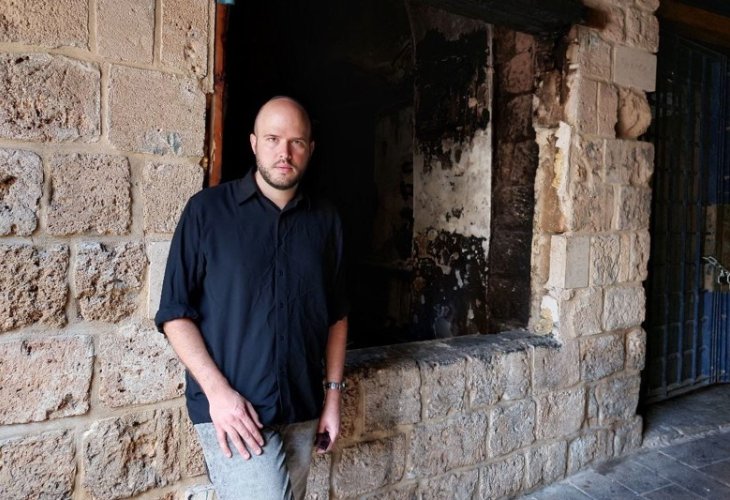 (Photo: Asher Shoshan)
(Photo: Asher Shoshan)"I am not at all surprised by the wave of attacks we are facing lately," says journalist Yair Kraus, a Northern Affairs correspondent living in Acre, who has repeatedly exposed the terror situation in mixed cities and throughout the country over the years. He ensures it is not forgotten or ignored.
Among his publications, you can find items and updates on events that the general media does not dwell on. This was particularly noticeable during last year’s disturbances, when he persistently reported day and night on what was happening in mixed cities. Even when it was less pleasant and convenient for the Israeli side. Now he warns: "The current wave of terrorism will not end unless the State of Israel decides to take action to stop it. We are in a very dangerous situation; someone needs to understand the significance and take action."
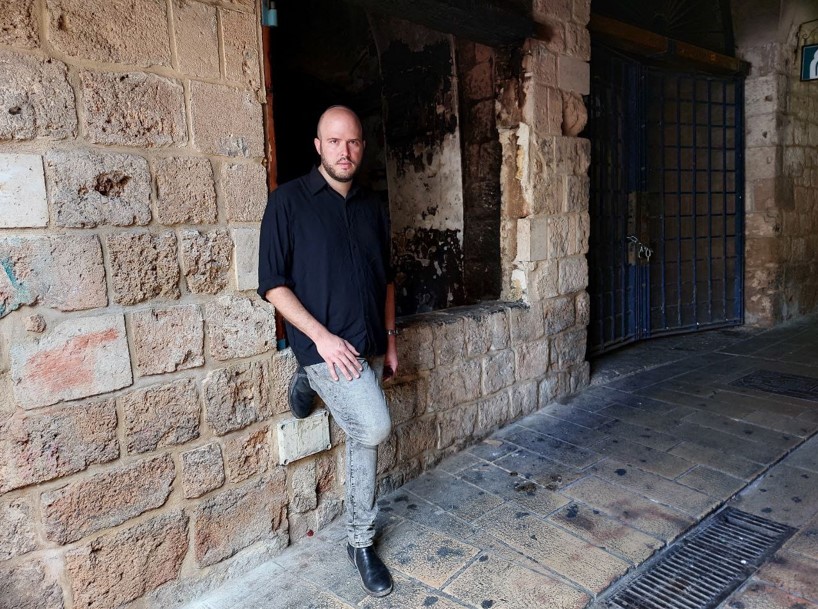 (Photo: Asher Shoshan)
(Photo: Asher Shoshan)
Riots, Attacks, and Terror
Why do you claim you are not surprised by the wave of terror?
"Already last year, when Operation Guardian of the Walls ended, it was clear it wouldn't end in Acre, Lod, and other mixed cities," Kraus clarifies. "Anyone who has followed the developments understood that the massive success of the rioters in those days of disturbances and destruction would lead to an effect that would accumulate and explode again during the next Ramadan month, unfortunately for us all. This was completely predictable."
When Kraus speaks, his voice is calm. He doesn't rant or shout. But the pain over the situation screams from the depths of his throat. "Today we all understand that the police failed to protect Jewish lives, and if we thought the courts would defend us, we found that they too did not fulfill their role. There is no law or order, no accountability. A feeling has arisen that our side is losing and becoming the one in the rear, while the other side decides when to start attacking and when to stop, as it sees fit."
But the IDF launched Operation Guardian of the Walls. How do you explain that it wasn’t sufficiently effective?
"Operation? I don't think it can be called an operation. The Arabs finished murdering and lynching Jews across the country, and as soon as they felt like it, they stopped the riots. There is no connection to the IDF's actions. Personally, I realized this when I walked around during the riots in my hometown - Acre. I saw hordes of hate-filled Arabs with red eyes and a thirst for lynching Jews, causing massive damage and attacking wherever possible daily. This is not something that can be eradicated with a one-time operation. When the treatment is flawed from the root and no one is doing their job, no operation can help."
However, Kraus wants to emphasize that, of course, not all Arabs in Acre are terrorists, nor in other mixed cities. "I've seen hundreds of them, but you must remember that Acre has over 20,000 Arabs, and the terrorists are still a minority among them. It's complex because it's hard to distinguish between them. There’s no black and white, which is why it's so important to have a system that works well and handles all arising problematic phenomena, and believe me, they will continue to arise. There's no reason for them to stop."
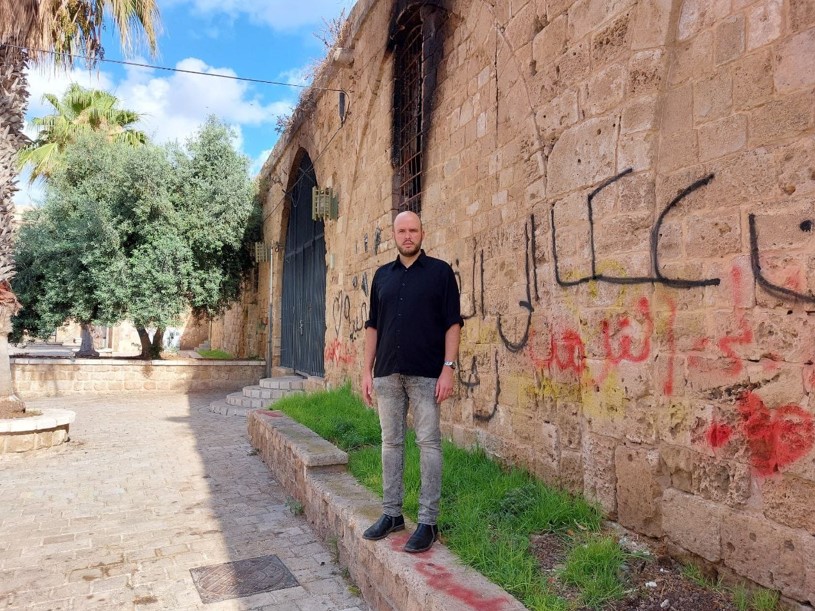 (Photo: Asher Shoshan)
(Photo: Asher Shoshan)
An Unprecedented Scope
Let’s talk operationally. How would you expect the government to act? What tools do you think could be effective?
"Firstly, I would expect the police not to contain the events and not allow Arabs to loot, spray, and destroy all day and night while turning every night into Kristallnacht. People don't even understand a little bit of what we experienced those days, but in Acre, there are over 60 businesses, inns, stores, galleries, ships, and yachts where anything with a trace of Jewishness went up in flames. So how can you ignore it?"
People really aren't aware of the scale of the disturbances...
"True, that's not new to me. I was the only one who spoke and told about it. I found myself completely alone in the battle, when every week there were mass demonstrations supporting the terrorists, with continuous harassment and anti-Semitic attacks against Jewish children, women, and elderly. No one reported it, and I felt a tremendous responsibility. I understood that if I wasn't alert enough to what's happening and didn't expose the atrocities, the events would pass under the radar without anyone waking up and saying: 'Look what's happening here.'"
And maybe ignoring it could have helped? After all, sometimes the media fuels the attacks and causes an inciting atmosphere...
"I don't think terrorists need the media to fuel them to attack. The period we are in is marked by escalation and incitement. There are so many social networks that incite, and they don't need the journalistic article to encourage Arabs to attack Jews. The main role left for the media is to demand security, supervise what is happening on the ground, and ensure that the security and political systems perform their duties properly."
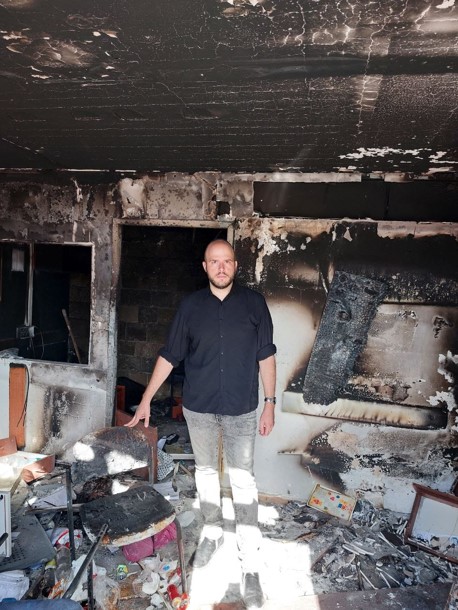 (Photo: Asher Shoshan)
(Photo: Asher Shoshan)
When the Minority Starts to Rule
Kraus speaks about the grim outcomes with great pain: "A situation has arisen where there is a Jewish majority in the country that has lived for years with the mindset of a persecuted minority and with fear and dread from the Arabs. All this instead of feeling like the owners, as they indeed deserve. It's not that I ignore that the Arab public also deserves rights; many of them are considered citizens like everyone else, part of Israeli society. But they deserve minority rights, not majority rights. Because the country is Jewish."
Do you think if Netanyahu were in power, the situation would look different?
"It's hard for me to say. After all, Operation Guardian of the Walls took place during Netanyahu’s term, and as I mentioned, I see this operation as nothing more than a stammered response to the Arab crimes. But let’s not forget it happened during days of political chaos, and it’s not sure it’s right to relate to an event that took place at such a time to draw conclusions. I would suggest examining Netanyahu’s other 15 years of rule, before the chaos period. As can be seen, even during his time, the judicial system sometimes operated in a rotten manner, was lenient with criminals and rioters, and did not always manage to produce deterrence. Sometimes the feeling is like ‘we remember the meat in Egypt,’ and a bit detached from reality."
"What’s clear is that if Netanyahu's government were today, it might have been more stable, without such extreme symbols that see settlers as enemies and are concerned with speaking against the "religious threat" and the "Torah-oriented groups," which they claim pose the real threat to the state of Israel. Such talks are not only absurd but also cause us tremendous harm. Personally, I think harsh criticism was voiced against Netanyahu back then, but today many people miss him. It seems something about his presence was more stable, more responsible."
Are you concerned about what the future holds?
He thinks for a moment and responds: "Yes, I’m very concerned. I feel that we've come to a period of reaction where everything is becoming more extreme, especially with Mansour Abbas as part of today's coalition, who, like other leading figures in the Arab public, does not take responsibility and fight against the crime and war among the Arabs. So, of course, it worries me, and I'm very concerned that we are facing a difficult and dangerous wave of terror."
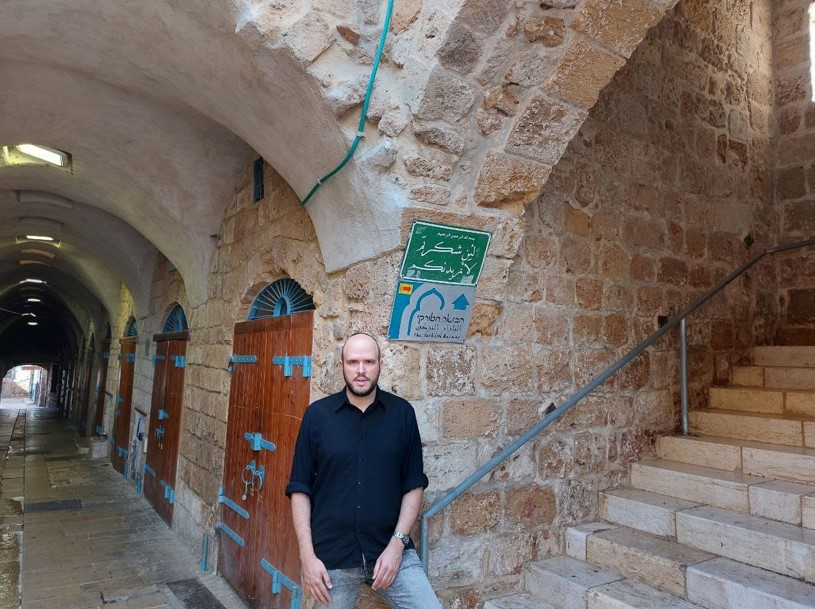 (Photo: Asher Shoshan)
(Photo: Asher Shoshan)You've taken it upon yourself as a life mission to report all these events. Aren't you afraid?
"Afraid? Not at all. I am a believer and do not think something might happen to me because I am engaged in informing the public. On the contrary, I see my role as a mission to warn and alert."
"Every time I realize how critical this role is, for instance, a few weeks ago, a social activist and head of a human rights movement in Arab society was interviewed on the Knesset Channel. When asked if the Arabs lynched Elad Barzilai in Acre, he answered with serious and sincere sincerity: 'No.' When it's clear to all of us that this is a lie. So, in times like these, when lies spread with no shame - if we don't stand up and voice the opposing side, we will reach a point where we have no chance to recover anymore."
Finally, do you have anything optimistic to accompany us with?
"It’s always important to be optimistic, and we are allowed to be. I recommend all worried citizens understand that we are now in a complex period where reality sounds difficult and hysterical. But we are only on a specific page in the book and see only the current point. It is very possible that if we turn a few pages forward, we will see that everything has become better, and that is also my great hope."
Go tell that to the families whose loved ones were murdered or injured in the recent attacks...
"True, I have nothing to say to those families. My heart is with them, and nothing in the world can comfort them. But it must be remembered that war has always been part of us, and in the end, we are an eternal nation and are not afraid of a long journey. With Hashem's help, with prayers and proper responses, we will still see great improvement, and hopefully soon."

